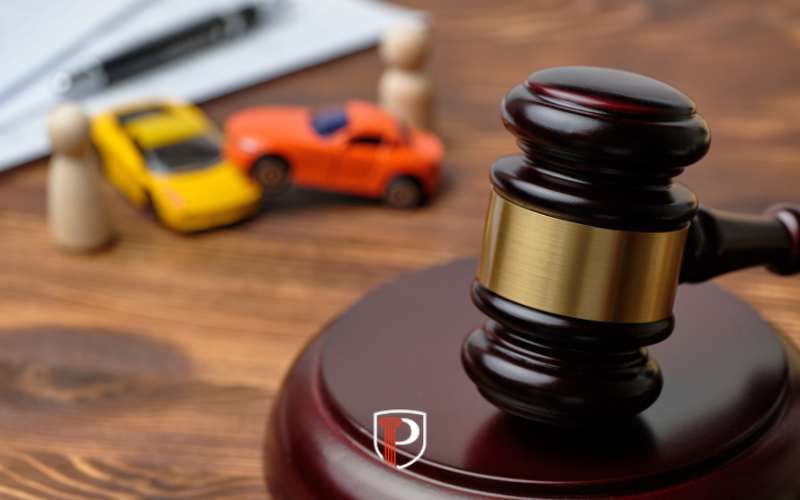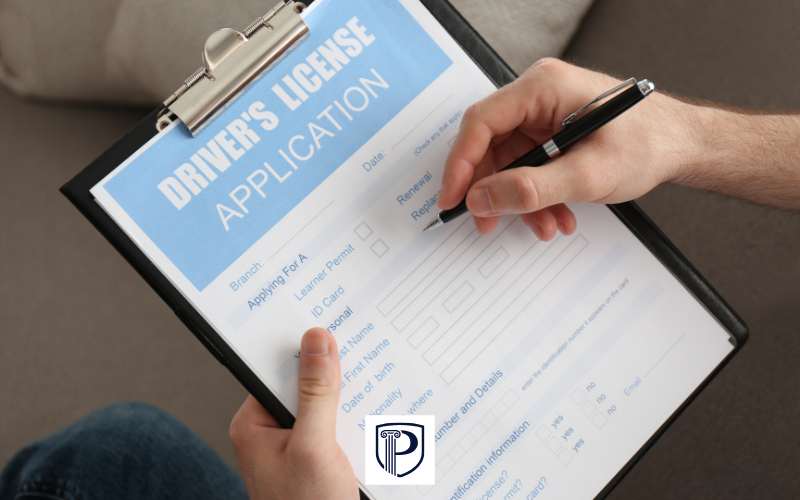Reinstating your driver’s license in Illinois can be a detailed process, often requiring a clear understanding of the specific steps involved. Whether your license was revoked due to a DUI, accumulation of traffic violations, or other reasons, knowing what you need to do before you can legally get back on the road is crucial. From fulfilling any court-mandated obligations to addressing outstanding fees or fines, each step is essential in restoring your driving privileges.
To ensure a smooth reinstatement process, it’s important to stay informed about the requirements and seek assistance if needed. If you’re unsure where to start or need guidance on navigating the reinstatement process, our experienced team is here to help. Call our license reinstatement firm at (708) 274-4499 today to discuss your situation and take the first step toward reclaiming your driving rights.
Understanding License Suspension and Revocation in Illinois
A suspension is a temporary loss of driving privileges for a set period. Once the suspension period ends and any necessary requirements are met, you can usually reinstate your license. A revocation, however, is a complete termination of your driving privileges. After a revocation, you must apply for reinstatement, often going through formal hearings and satisfying strict requirements to regain driving privileges.
Common reasons for suspension include DUI offenses, accumulating excessive points on your driving record, failing to pay child support, or certain traffic violations. Revocations typically result from more severe infractions, such as multiple DUIs, felony traffic offenses, or leaving the scene of a serious accident.

A suspended or revoked license can lead to significant legal and financial consequences. Driving with a suspended or revoked license is a criminal offense that can result in fines, extended suspension or revocation periods, and potentially jail time. Furthermore, reinstating a license after revocation can be costly, requiring payment of fees, completion of educational courses, and possibly attending a formal hearing.
Steps to Take Before Reinstating Your License
To reinstate your license in Illinois after a suspension or revocation, following the required steps carefully can help ensure a smooth process. Here’s a breakdown of each step to help you regain your driving privileges.
Review Your Driving Record
Start by obtaining a copy of your driving record from the Illinois Secretary of State. Reviewing this record helps you identify the specific violations that led to the suspension or revocation, as well as any outstanding penalties or requirements. Understanding the reason your drivers' license was suspended gives you a clear picture of what needs to be addressed before reinstatement.
Complete Any Required Programs or Courses
Depending on the violations, Illinois may require completion of specific programs as a condition for license reinstatement:
- Alcohol or Drug Education Programs: If your suspension was due to a DUI, you may need to complete alcohol or drug treatment or education programs. These programs aim to address issues related to impaired driving and help prevent future offenses.
- Defensive Driving Courses: In some cases, defensive driving courses may be required, especially if the violations involved reckless or dangerous driving. Completing these courses may also demonstrate a commitment to safe driving practices.
Pay Outstanding Fines and Fees
Before your license can be reinstated, all financial obligations must be settled. This includes:
- Traffic Fines: Any unpaid fines related to traffic violations.
- Court Fees: Additional fees from any court proceedings connected to your suspension.
- Reinstatement Fees: Fees imposed by the Illinois Secretary of State for processing the reinstatement. Be prepared to pay all applicable fees, as outstanding balances can delay the process.
Submit Required Documentation
Gather all essential documentation to support your reinstatement application:
- Proof of Identity: Documents such as a birth certificate or Social Security card to verify your identity.
- Completion Certificates: Proof of completed courses or treatment programs, if required.
- Form Submission: Properly fill out and submit the reinstatement application forms provided by the Illinois Secretary of State. Ensuring the forms are complete and accurate can help avoid delays or rejection of your application.
If Applicable Schedule a Hearing
In certain cases, particularly with repeat offenses or serious violations, Illinois requires a formal hearing before you can get your license back. To schedule a hearing, contact the Secretary of State’s office, and be prepared to present evidence of rehabilitation and adherence to any mandated conditions.
By following these steps and ensuring all requirements are met, you increase your chances of a successful license reinstatement. Each step demonstrates to Illinois authorities your commitment to responsible driving and compliance with state regulations.
What if I Don’t Have the Required Documents for Reinstatement?
If you don’t have all the required documents for reinstating your license in Illinois, it’s essential to address each missing item to avoid delays or denial of your application. Here’s what you can do:
- Identify Missing Documents: First, confirm exactly which documents are missing. This might include proof of identity, completion certificates for required programs, or reinstatement forms. Reviewing the list of required documents from the Illinois Secretary of State can help you avoid further complications.
- Replace Identity Documents: If you’re missing vital identity documents, such as a birth certificate or Social Security card, take steps to replace them:
- Birth Certificate: Contact the vital records office in your birth state to request a certified copy.
- Social Security Card: You can apply for a replacement card through the Social Security Administration (SSA). This often requires proof of identity, so make sure you have at least one form of ID available.
- Obtain Program Completion Certificates: For those who need completion certificates from DUI or defensive driving courses, contact the program provider directly. They may issue a replacement certificate or send a record of your completion to the Secretary of State on your behalf.
- Contact the Illinois Secretary of State: If you’re unsure about alternative documents that may be accepted, contact the Secretary of State’s office. They can provide guidance on acceptable alternatives, such as affidavits, notarized letters, or other forms of verification in certain situations.
- Request a Hearing for Exceptions: In some cases, if you are unable to obtain specific documents despite your best efforts, you may be able to request a formal license reinstatement hearing. At the hearing, explain the steps you’ve taken to try to obtain the required documents. The hearing officer may consider your situation and decide if any alternative documents or additional actions will be sufficient.

Taking these steps can help ensure your application proceeds without unnecessary delays, even if obtaining certain documents proves challenging.
How Much Does It Cost to Reinstate a Drivers License?
The cost to reinstate a driver’s license in Illinois depends on the reason for suspension or revocation. Here are some common fees:
- DUI-Related Suspension or Revocation: $500 reinstatement fee for DUI-related license suspensions. Additional fees may apply for court-mandated alcohol or drug programs.
- Failure to Pay Fines or Traffic Violations: $70 reinstatement fee for suspensions due to unpaid fines or minor traffic violations.
- Repeat Traffic Offenses: $100 reinstatement fee for repeat moving violations that lead to a suspension.
- Child Support Suspension: $70 reinstatement fee if your license was suspended due to failure to pay child support.
- Failure to Have Insurance: $100 reinstatement fee for driving without insurance.
These fees are payable to the Illinois Secretary of State and are separate from any court fees or fines related to the offense.
What Happens if My Reinstatement Application is Denied?
If your driver’s license reinstatement application is denied in Illinois, it means the Secretary of State’s office determined that you have not yet met the requirements to regain driving privileges. Here are the potential next steps and options:
- Requesting a Formal Hearing or Reapplying: After a denial, you may be eligible to request another formal hearing. The timing depends on the reason for the denial. You can work on any issues cited in the denial before reapplying.
- Completing Additional Requirements: The denial letter will usually explain why the application was denied. Common reasons include incomplete treatment programs, insufficient documentation, or failure to show evidence of rehabilitative steps (especially for DUI cases). You may need to complete additional requirements before reapplying.
- Appealing the Denial in Circuit Court: If you believe the denial was unfair or based on incorrect information, you may have the option to appeal the decision in an Illinois circuit court. Consulting with a lawyer can help assess the strength of an appeal.
- Requesting a Restricted Driving Permit (RDP): If reinstatement is not yet possible, you may qualify for an RDP, allowing limited driving privileges for specific purposes like work, medical appointments, or educational needs. Eligibility depends on your record and specific circumstances.
Each of these options requires careful attention to detail and may benefit from legal assistance to improve the chances of a successful outcome.
Take Action Toward Regaining Your Driving Privileges
Reinstating your driver’s license in Illinois can be a complex process, but understanding the necessary steps can make it easier. Whether you're dealing with fines, documentation, or other requirements, being prepared is key to a successful reinstatement. If you have questions or need assistance navigating this process, don’t hesitate to get help from our suspended license attorneys in DuPage County.
Our knowledgeable team is ready to guide you through every step, ensuring you meet all requirements efficiently. Contact us today to learn more about how we can assist you in reinstating your license and getting back on the road.
